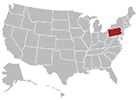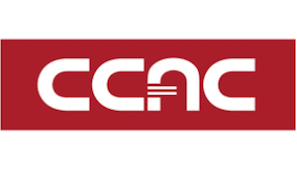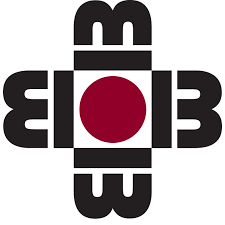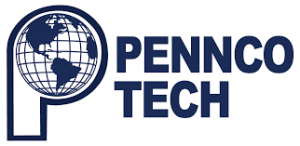
Pharmacy technicians work under the supervision of a licensed pharmacist.
They assist the pharmacist with sorting, labeling, mixing, and recording various types of medication.
Candidates who would like to work in this field should be 18 years of age, have a high school diploma or GED, and pass a drug and background screening.
For most, the journey starts with attending an accredited course.
Page Navigation
Licensing Requirements to Become a Pharmacy Technician in Pennsylvania
In the state of Pennsylvania, the field of pharmacy technicians is not regulated.
The Pennsylvania State Board of Pharmacy does not require candidates to be licensed and does not offer examinations in order for candidates to obtain licenses.
However, pharmacy technicians must work under the supervision of a licensed pharmacist.
Candidates who do pursue an education in this field should preferably look for programs that have been accredited by the American Society of Health-System Pharmacists (ASHP) as these should help to place the candidate in a better position when looking for work.
5 Pharmacy Technician Schools in Pennsylvania
1. HACC-Central Pennsylvania’s Community College
HACC-Central Pennsylvania’s Community College offers a certificate program.
The program spans over a six-month period with one class in the evenings per week.
The program is offered at Harrisburg, Lebanon, and Lancaster Campuses as well as online.
Upon successful completion of the course, students are eligible to sit for the Pharmacy Technician Certification Board (PTCB) examination.
The program is a total of 144 hours and tuition is $1,620 excluding fees or books.
Students learn to maintain the quality and levels of inventory, conduct insurance billing, as well as participate in quality control measures and processes.
The course work includes pharmacy science, pharmacy practice, pharmacy calculations, and an optional pharmacy test prep.
2. Community College of Allegheny County
Community College of Allegheny County offers two programs, including a certificate and an associate degree program that are both ASHP accredited.
The associate degree program has a total of 63 to 64 credit hours.
The program prepares students for entry-level positions as pharmacy technicians in hospital and retail pharmacy settings.
Students are equipped with the skills and knowledge to compound and distribute medication.
In addition, students are trained to provide other pharmaceutical supplies as well as learn how to develop intravenous admixtures.
Tuition is calculated as follows.
In-county, residents pay $122.00 per credit for one to 11 credits or a flat rate of $1,830.00 for 12 to 18 credits.
Out-of-state students pay $366.00 for one to 11 credits or a flat rate of $5,490.00 for 12 to 18 credits in the fall intake.
Prices differ for the summer intake.
3. Bidwell Training Center
Bidwell Training Center offers an eight-month Pharmacy Technician Diploma program.

The program is ASHP accredited and courses start in October each year.
Classes are offered during the daytime from Monday to Friday, 8.30 a.m. through 2.55 p.m.
There is no tuition charge for residents of Pennsylvania.
The program comprises a series of courses including anatomy and physiology, pharmacy lab work, pharmacology, communications, computers, and pharmacy math, as well as an 8-week externship where students are able to apply their skills and knowledge in a real-world setting.
Students are prepared for an entry-level position in a variety of settings, such as hospital pharmacies, retail, long-term care facilities, nuclear pharmacies, and insurance companies.
4. Pennco Tech
Pennco Tech offers a Pharmacy Technician Certificate program that includes an externship and may be completed in as little as six months.
The program is a combination of classroom instruction, hands-on training, and lab work.
The program prepares students to sit for the Pharmacy Technician Certification Exam (PTCE).
Upon successful completion of the examination, students will receive a Certified Pharmacy Technician (CPhT) credential.
The program teaches students about pharmaceutical terminology, how to identify different kinds of drugs, such as generic brands versus brand names, and how to read and interpret prescriptions.
In addition, students learn about intravenous (IV) flow rates, inventory control billing, calculating dosages, how to compound drugs and medication safety.
5. Pennsylvania Highlands Community College
Pennsylvania Highlands Community College offers an online certificate program.
The course prepares students to sit for the Pharmacy Technician Certification Board (PTCB) National Certification exam and includes an externship to help prepare students for the working world.
The course may be completed in 12 months or less.![]()
This time frame does not include the time required for the more than 100-hour externship.
Students will learn about federal and state laws that govern this industry.
The course is comprised of theory, clinical rotation, and lab work.
Students learn about insurance and inventory procedures, pharmacology, pharmaceutical calculations, as well as communication skills.
Tuition for in-county students is $4,460, while out-of-county and out-of-state students pay $7,660 and $10,630 respectively.
Pharmacy Technician Schools in Pennsylvania – Summary Table
Top 5 Schools in Pennsylvania
| School Name | Address |
|---|---|
| HACC-Central Pennsylvania’s Community College | 1 HACC Dr, Harrisburg, PA 17110, |
| Community College of Allegheny County | No 800, Allegheny Avenue, Pittsburgh, Pennsylvania |
| Bidwell Training Center | 1815 Metropolitan St, Pittsburgh, PA 15233 |
| Pennco Tech | 3815 Otter St, Bristol, PA 19007 |
| Pennsylvania Highlands Community College | Center Street (Suite 315), Somerset, PA 15501 to 6024 Glades Pike Suite, Somerset, PA 15501 |
Pharmacy Technician Salary in Pennsylvania
There are three salary ranges as candidates progress in this industry and in this field, with varying levels of experience:
- Entry level – $30,131
- Mid-career – $37,200
- Experienced – $45,415
Average Salary of Pharmacy Technicians in Pennsylvania
| City Name | Salary |
|---|---|
| Philadelphia | $39,900 |
| Pittsburgh | $36,700 |
| Allentown | $37,600 |
| Erie | $34,400 |
| Upper Darby | $39,902 |
| Reading | $37,100 |
| Scranton | $34,400 |
| Bethlehem | $37,600 |
| Lower Merion | $36,500 |
| Bensalem | $40,200 |
Regional Salary in Pennsylvania
| Region | Employed | Avg. Annual Salary | Avg. Hourly Pay | Top 10% Annual Salary | Bottom 10% Annual Salary |
|---|---|---|---|---|---|
| Allentown-Bethlehem-Easton, PA-NJ | 1,230 | $35,510 | $17.07 | $45,870 | $23,970 |
| Altoona, PA | 200 | $35,470 | $17.05 | $48,080 | $23,660 |
| Bloomsburg-Berwick, PA | 250 | $35,450 | $17.04 | $44,930 | $27,740 |
| Chambersburg-Waynesboro, PA | 150 | $37,520 | $18.04 | $50,170 | $28,820 |
| East Stroudsburg, PA | 190 | $34,360 | $16.52 | $44,030 | $27,070 |
| Erie, PA | 340 | $34,780 | $16.72 | $46,220 | $26,580 |
| Gettysburg, PA | 50 | $35,000 | $16.83 | $44,480 | $28,960 |
| Harrisburg-Carlisle, PA | 900 | $37,300 | $17.93 | $46,070 | $27,740 |
| Johnstown, PA | 160 | $31,530 | $15.16 | $38,600 | $22,920 |
| Lancaster, PA | 600 | $35,940 | $17.28 | $44,830 | $27,930 |
| Lebanon, PA | 130 | $36,920 | $17.75 | $50,120 | $28,760 |
| Philadelphia-Camden-Wilmington, PA-NJ-DE-MD | 10,100 | $38,130 | $18.33 | $48,330 | $28,800 |
| Pittsburgh, PA | 3,920 | $37,030 | $17.8 | $45,870 | $28,730 |
| Reading, PA | 430 | $36,420 | $17.51 | $45,040 | $28,620 |
| Scranton--Wilkes-Barre--Hazleton, PA | 1,330 | $36,060 | $17.34 | $43,990 | $28,110 |
| State College, PA | 160 | $35,320 | $16.98 | $45,140 | $26,490 |
| Williamsport, PA | 130 | $33,610 | $16.16 | $44,710 | $24,560 |
| York-Hanover, PA | 510 | $35,690 | $17.16 | $44,720 | $27,650 |
* Employment conditions in your area may vary.
Frequently Asked Questions
How much do CVS pharmacy techs make in PA?
As of 2022, pharmacy technicians that work for CVS pharmacies in the state of Pennsylvania earn an hourly wage that is similar to that of the national average, approximately $16.42.
In Pennsylvania, what are at least four responsibilities of a pharmacy technician?
- Prepare and distribute medication for patients.
- Perform different calculations.
- Accurately collect information about the patient.
- Ensure that there is compliance with regulatory requirements.
Is it difficult to be a pharmacy technician in Pennsylvania?
This is a very challenging job that requires a lot of attention to detail.




